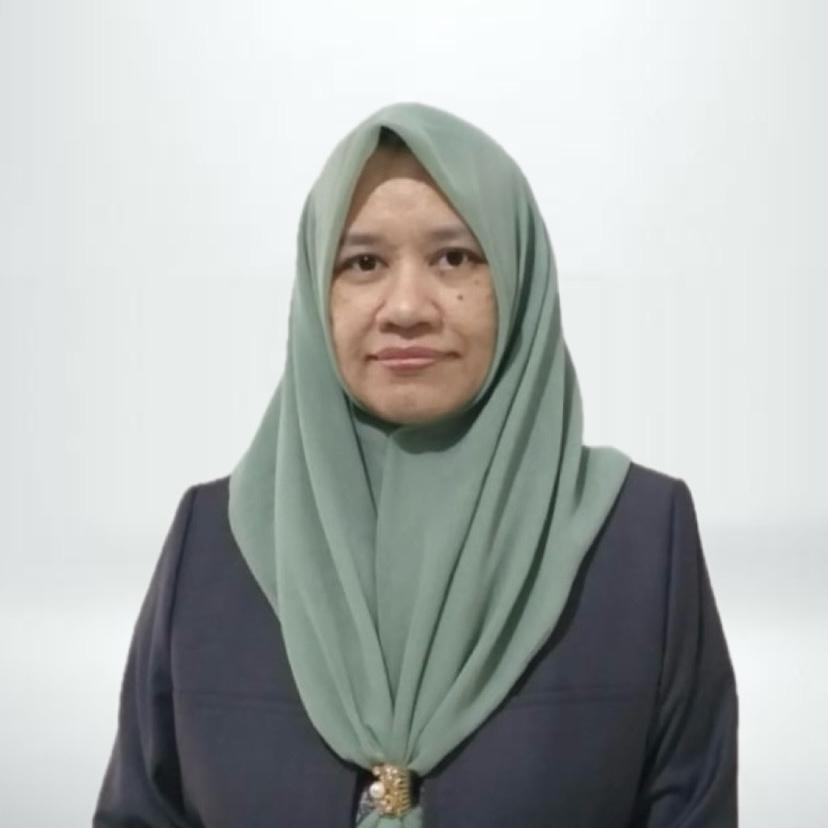INTEGRATION OF CONFIRMATION EXPECTATIONS, JUSTICE, TRUST, AND RESPONSIBILITY MODELS, PERCEPTIONS, IN EXPLAINING COMPLAINTS BEHAVIOR ON ONLINE SHOPPING SITES
Downloads
This study aims to examine the factors of fairness, expectation of confirmation, trust, perceived responsiveness in influencing customer satisfaction and its consequences in influencing the intention to make a complaint. This study develops the study of Wu (2013) which expands the confirmation expectation model in explaining complaint behavior. The constructs used are distributive justice, procedural justice, interactional justice, confirmation expectations, perceived usefulness, trustworthiness, perceived responsiveness, customer satisfaction and intention to complain.
This study uses a survey method conducted to 201 respondents. This study uses the Structural Equation Model (SEM) as a statistical test tool.
The results showed that apart from procedural justice and interactional justice, all constructs were positively related to customer satisfaction. The results also show that customer satisfaction is not negatively related to the intention to make a complaint. This indicates that the majority of respondents have high collectivist values which tend to have no intention to make complaints. This also confirms the research of Liu and Mclure (2001) which states that people who have collectivist values tend not to have the intention to make complaints.
Adams, J.S. Inequity in social exchange, in Berkowitz, L. (Ed.), Advances in Experimental Social Psychology. 1965. Academic Press, New York, NY.
Ajzen, I. 1991.The Theory of Planned Behavior. Organizational Behavior and Human Decision Processes, 50 (2):179-211.
Anderson, E. and Weitz, B.A. 1989 Determinants of Continuity in Conventional Industrial Channel Dyads. Marketing Science, 8: 10-23.
Anthony, R. dan V. Govindarajan. Management Control Systems (12th ed.). 2007. IL: Irwin McGraw-Hill.
Ayanso, Ateneh; Herath Tejaswini; C O'Brien, Nicole. 2015. Understanding Continuance Intentions on Physicians with Electronic Medical Records (EMR): An Expectancy-Confirmation Perspective. Decision Support Systems, 77: 112-122.
Bhattacherjee, A. 2001 Understanding Information Systems Continuance: An Expectation–Confirmation Model. MIS Quarterly, 25(3): 351–370.
Blodgett, J. G., Granbois, D. H., & Walters, R. G. 1993. The Effects of Perceived Justice on Complainants Negative Word-of-Mouth Behavior and Repatronage Intentions. Journal of Retailing, 69: 399–427.
B. Sindhav, J. Holland, A.R. Rodie, P.T. Adidam, L.G. Pol. 2006. The Impact of Perceived Fairness on Satisfaction: are Airport Security Measures Fair? Does it Matter. Journal of Marketing Theory and Practice, 14 (4): 323–335.
Chong, A. and Loong, Y. Felix T.S. Chan, Keng-Boon Ooi. 2012. Predicting Consumer Decisions to Adopt Mobile Commerce: Cross Country Empirical Examination Between China and Malaysia. Decision Support Systems, 53:, 34–43.
Chen, C.S., Liu L.M., Lin P.C. 2013. Integrating Technology Readiness into the Expectation–Confirmation Model: An Empirical Study of Mobile Services. Cyberpsychology, Behavior, and Social Networking, 16( 8): 604-611.
Chiu, M.C., Linb, Y.H., Sun, Y.S., Hsu H.M. 2009. Understanding Customers' Loyalty Intentions Towards Online Shopping: An Integration of Technology Acceptance Model and Fairness Theory. Behaviour & Information Technology, 28( 4): 347–360
Colquitt, J. A., Wesson, M. J., Porter, C. O. L. H., Conlon, D. E., & Ng, K. Y.2001. Justice at The Millennium: A Meta-Analytic Review of 25 Years of Organizational Justice Research. Journal of Applied Psychology, 86(3): 425–445.
Cooper, Donald R, dan P. S. Schindler. Business Research Model. Newyork: McGraw-Hill/Irwin. 2006.
Davis, F.D. 1989. Perceived Usefulness, Perceived Ease of Use, and User Acceptance of Information Technology. MIS Quarterly, 13, 319–340.
DeLone, W.H. and McLean, E.R. 1992. "Information Systems Success: The Quest For The Dependent Variable. Information Systems Research, 3: 60-95.
.2003. The DeLone and McLean Model of Information Systems Success: A Ten-Year Update. Journal of Management Information Systems, 19 (4): 9-30.
"Measuring E-Commerce Success: Applying the DeLone & McLean Information Systems Success Model.” International Journal of Electronic Commerce, 9 (1), 31-47.
Fang, Y.H., & Chiu, C.-M. 2010. In Justice We Trust: Exploring Knowledge-Sharing Continuance Intentions in Virtual Communities of Practice. Computers in Human Behaviors, 26: 235–246.
Fang, Y.H., & Chiu, C.-M., dan Wang, Eric T.G. 2011. Understanding Customer Satisfaction and Repurchase Intentions An Integration of IS Success Model, Trust,and Justice. Internet Research, 21 ( 4).
Finn, A., Wang, L., & Frank, T. 2009 Attribute Perceptions, Customer Satisfaction and Intention to Recommend E-Services. Journal of Interactive Marketing, 23(3): 209–220.
Forbes, L., Kelley, S., & Hoffman, D. 2005. Typologies of E-Commerce Retail Failures and Recovery Strategies.” Journal of Services Marketing, 19(5): 280– 292.
Fu, J.-R., Ju, P-H., Hsu, C-W. "Understanding Why Consumers Engage in Electronic Word-of-Mouth Communication: Perspectives From Theory of Planned Behavior and Justice Theory.” Electronic Commerce Research and Applications, 2015.
Gefen, D., Karahanna, E., & Straub, D. 2003 Trust and TAM in online shopping: An integrated model. MIS Quarterly, 27(1): 51–90.
Giese, J.L. dan Cote, J.A. 2000. Defining Consumer Satisfaction. Academy of Marketing Science, 2(1)
.2003. Inexperience and Experience with Online Stores: The importance of TAM and Trust. IEEE Transactions on Engineering Management, 50(3): 307–321.
Hair, J. F., Black, W. C., Babin, B. J., Anderson, R. E., & Tatham, R. L. 2010. Multivariate Data Analysis (Seventh ed.). New Jersey: Pearson Education Inc.
Hartono, Jogiyanto. 2007. Sistem Informasi Keperilakuan. Edisi 1. Yogyakarta, Indonesia: ANDI OFFSET.
.2008. Metodologi Penelitian Sistem Informasi. Edisi 1. Yogyakarta, Indonesia: ANDI OFFSET.
.2013Metodologi Penelitian Bisnis: Salah Kaprah dan Pengalaman-Pengalaman. Edisi 6. Yogyakarta, Indonesia: BPFE UGM.
.2014 & W. Abdillah. Konsep dan Aplikasi PLS (Partial Least Square) untuk Penelitian Empiris. Edisi 1. Yogyakarta, Indonesia: BFFE UGM.
Henry, J. W., & Stone, R. W. 1994. A Structural Equation Model of End-User Satisfaction with a Computer-Based Medical Information System.” Information Resource Management Journal, 7(3): 21–33.
Hirschman, A., Exit, Voice and Loyalty. Cambridge, MA: Harvard University Press. 1970.
Hofstede, Geert.. 2001. Culture's Consequences: Comparing, Values, Behaviors, Institutions, and Organizations Across Nations, 2nd ed., Thousand Oaks, California: Sage Publications, Inc.
Holloway, B., Wang, S., & Parish, J. 2005. The Role of Online Purchasing Experience in Service Recovery Management.” Journal Interactive Marketing, 19(3): 54–67.
Ismail, A., Abdullah, A.A., Francis, S.K. 2009. Exploring the relationships among service quality features, perceived value and customer satisfaction”. Journal of Industrial Engineering and Management, 2(1), 230-250.
Jacoby, J. Jaccard, J. 1981. The Source, Meaning, and Validity of Consumer Complaint Behavior: A Psychological Analysis. Journal of Retailing, 57: 4-24.
Olsen, M.D. Johnson. 2003. Service Equity, Satisfaction, and Loyalty: From Transaction-Specific to Cumulative Evaluations. Journal of Service Research, 5 (3):184–195.
Lee, J., Park, D.H. and Han, I.2011. The Different Effects of Online Consumer Reviews on Consumers Purchase Intentions Depending on Trust in Online Shopping Malls: an Advertising Perspective.” Internet Research, 21 (2): 187-206.
Leventhal, G.S. 1980. What Should Be Done with Equity Theory? In Social Exchange:Advances in theory and Research, edited by K.J Gergen, M.S. Greenberg, and R.H. Willis, 27-55. New York, NY: Plenum P.
Liu, R. R., & McClure, P.2001. "Recognizing cross-cultural differences in consumer complaint behavior and intentions: An empirical examination.” Journal of Consumer Marketing, 2001: 18(1), 54–75.
Livary, J., 2005 An Empirical Test of The DeLone-McLean Model of Information System Success. Database for Advance in Information System (DFA), : ISSN: 1532-0936 .Vol 36. ProQuest Company.
Mardhiyah, Dien; Basu Swastha Dharmmesta, and B.M. Purwanto. 2013. Antecedents to Online Negative Word-of-Mouth Communication Intention Gadjah Mada International Journal of Business, 15 (2); 113-132.
Martinez-Tur, V., Peiro, J. M., Ramos, J., & Moliner, C. 2006. Justice Perceptions as Predictors of Customer Satisfaction: The Impact of Distributive, Procedural, and Interactional Justice. Journal of Applied Social Psychology, 36(1): 100–119.
Maxham, J. G., III, & Netemeyer, R. G. 2002 Modeling Customer Perceptions of Complaint Handling Over Time: The Efects of Perceived Justice on Satisfaction and Intent. Journal of Retailing, 78(4): 239–252.
McKnight, D. H., & Chervany, N. L. 2002 Trust Means in E-commerce Customer Relationships: An Interdisciplinary Conceptual Typology. International Journal of Electronic Commerce, 6(2): 35–72.
Moorman, C., Deshpande, R., & Zaltman, G. 1993 Factors Affecting Trust in Market Research Relationships. The Journal of Marketing, 57(1): 81–101.
Morgan, R. M., & Hunt, S. D. 1994. The Commitment-Trust Theory of Relationship Marketing. The Journal of Marketing 58(3): 20–38.
Okeke, T.C., Ezeh, G.A., Ugochukwu, N.O.A. 2015. Service Quality Dimensions and Customer Satisfaction with Online Services of Nigerian Banks.” Journal of Internet Banking and Commerce, 20 (3): 1-9.
Oliver, R. L. 1980. A Cognitive Model of The Antecedents and Consequences of Satisfaction Decisions.” Journal of Marketing Research, 17(4): 460–469.
Oliver, R. L. 1981. Measurement and Evaluation of Satisfaction Process in Retail Settings.” Journal of Retailing, 57: 25–48.
Palvia, P. 2009. The Role of Trust in E-commerce Relational Exchange: A Unified Model.” Information and Management, 46(4): 213–220.
Parasuraman, A., Zeithaml, V.A. and Malholtra. 2005 E-S-QUAL: A Multiple-Item Scale for Assessing Electronic Service Quality, Journal of Service Research, 7(3): 213-35.
Pavlou, P.A. & Fygenson, M., 2006 . Understanding and predicting electronic commerce adoption: an extension of the theory of planned behavior”, MIS Quarterly, 30 (1): 115-43.
Pavlou, P.A., Liang, H. and Xue, Y. 2007. Understanding and Mitigating Uncertainty in Online Exchange Relationships: A Principal-Agent Perspective.” MIS Quarterly, 31 (1) 105-36.
Seddon, P.B. 1997. A Respecification and Extension of the DeLone and McLean Model of IS Success. Information Systems Research, 8 ( 3): 240–253.
Sekaran, U., Metodologi Penelitian untuk Bisnis, Edisi 4, Buku 1, Jakarta: Salemba Empat. 2006
Thogersen, J. Juhl, H.J., Poulsen, C.S. 2009. Complaining: A Function of Attitude, Personality, and Situation. Psychology and Marketing, 26(1): 760–777.
Thong, Y. L., Hong, S. J., & Tam, K. Y. 2006. The Effects of Post-Adoption Beliefs on The Expectation–Confirmation Model for Information Technology Continuance. International Journal of Human–Computer Studies, 64: 799–810.
Turel, O., Yuan, Y., & Connelly, C. E. 2008. In Justice We Trust: Predicting User Acceptance of E-Customer Services. Journal of Management Information Systems, 24(4): 123–151.
Van der Heijden, H. 2003. Factors Influencing the Usage of Websites: The Case of A Generic Portal in The Netherlands. Information & Management, 20(6): 541–549.
Stephens, Nancy and Kevin P. Gwinner, 1988. "Why Don't Some People Complain? A Cognitive-Emotive Process Model of Consumer Complaint Behavior,” Journal of the Academy of Marketing Science, 26, (3), 172-189.
Voorhees, C. M., & Brady, M. K. 2005. A service perspective on the drivers of complaint intentions. Journal of Service Research, 8(2): 192–204
Wang, W. Hsieh, J. J Po. Butler, J. E., Hsu, S H. 2008. Innovate with Complex Information Technologies: A Theretical Model and Empirical.” The Journal of Computer Information Systems: 49 (1): 27
Wang, S.Y. 2008. Assessing E-Commerce Systems Success: A Respecification and Validation of the DeLone and McLean model of IS Success.” Informations Systems Journal, 18: 529–557
Wu, I.L. 2013. The Antecedents of Customer Satisfaction and Its Link to Complaint Intentions in Online Shopping: An Integration of Justice, Technology, and Trust. International Journal of Information Management, 33, 166–176.
ylki.or.id. (30 Januari 2016)
Authors who publish with Berkala Akuntansi dan Keuangan Indonesia agree to the following terms:
The journal allows the author to hold the copyright of the article without restrictions.
The journal allows the author(s) to retain publishing rights without restrictions
The legal formal aspect of journal publication accessibility refers to Creative Commons Attribution (CC BY NC SA)

BAKI (Berkala Akuntansi dan Keuangan Indonesia) is licensed under a Creative Commons Attribution-NonCommercial-ShareAlike 4.0 International License.


















